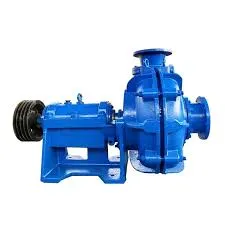Frisian
- Afrikaans
- Albanian
- Amharic
- Arabic
- Armenian
- Azerbaijani
- Basque
- Belarusian
- Bengali
- Bosnian
- Bulgarian
- Catalan
- Cebuano
- Corsican
- Croatian
- Czech
- Danish
- Dutch
- English
- Esperanto
- Estonian
- Finnish
- French
- Frisian
- Galician
- Georgian
- German
- Greek
- Gujarati
- Haitian Creole
- hausa
- hawaiian
- Hebrew
- Hindi
- Miao
- Hungarian
- Icelandic
- igbo
- Indonesian
- irish
- Italian
- Japanese
- Javanese
- Kannada
- kazakh
- Khmer
- Rwandese
- Korean
- Kurdish
- Kyrgyz
- Lao
- Latin
- Latvian
- Lithuanian
- Luxembourgish
- Macedonian
- Malgashi
- Malay
- Malayalam
- Maltese
- Maori
- Marathi
- Mongolian
- Myanmar
- Nepali
- Norwegian
- Norwegian
- Occitan
- Pashto
- Persian
- Polish
- Portuguese
- Punjabi
- Romanian
- Russian
- Samoan
- Scottish Gaelic
- Serbian
- Sesotho
- Shona
- Sindhi
- Sinhala
- Slovak
- Slovenian
- Somali
- Spanish
- Sundanese
- Swahili
- Swedish
- Tagalog
- Tajik
- Tamil
- Tatar
- Telugu
- Thai
- Turkish
- Turkmen
- Ukrainian
- Urdu
- Uighur
- Uzbek
- Vietnamese
- Welsh
- Bantu
- Yiddish
- Yoruba
- Zulu
Telephone: +86 13120555503
Email: frank@cypump.com
Oct . 09, 2024 00:55 Back to list
Innovative Pump Solutions for Enhanced Efficiency in the Chemical Industry
The Importance of Pumps in the Chemical Industry
Pumps play a critical role in the chemical industry, serving as essential components that facilitate the various processes involved in the production and distribution of chemicals. From transporting raw materials to moving finished products, these devices are foundational to ensuring efficiency, safety, and reliability in operations.
Types of Pumps Used in the Chemical Industry
The chemical industry utilizes a variety of pumps, each designed for specific applications based on the properties of the fluids being handled
. Common types of pumps include centrifugal pumps, positive displacement pumps, and diaphragm pumps.Centrifugal pumps are widely used due to their ability to handle large volumes of low-viscosity liquids. They operate by converting rotational energy, typically from a motor, into energy in the fluid being pumped, which makes them suitable for applications such as transferring cooling water or chemical solutions.
Positive displacement pumps, on the other hand, are ideal for handling viscous fluids. They work by trapping a fixed amount of fluid and forcing it into the discharge pipe. This makes them perfect for thick slurries and other challenging materials often found in chemical processing.
Diaphragm pumps are particularly valued for their ability to handle corrosive liquids and slurries, as they use a flexible diaphragm to separate the fluid from the mechanical components. This design minimizes the risk of contamination and ensures the safety of operations, which is crucial in an industry where chemical reactions can be hazardous.
The Role of Pumps in Safety and Compliance
chemical industry pump

In the chemical sector, safety is paramount. Pumps must be designed to withstand harsh operating conditions while minimizing the risk of leaks and spills. High-quality materials and engineering standards are vital to prevent environmental contamination and ensure compliance with stringent regulations. Proper pump selection and maintenance are critical to maintaining high safety standards, minimizing downtime, and protecting workers.
Moreover, as environmental concerns continue to rise, the industry is increasingly focusing on sustainable practices. This shift demands pumps that not only meet performance standards but also reduce energy consumption and minimize waste. Innovative designs, such as magnetically driven pumps, eliminate the need for mechanical seals, thereby reducing the risk of leaks and enhancing efficiency.
Innovations in Pump Technology
Technological advancements are continually shaping the landscape of pump design in the chemical industry. Modern pumps increasingly feature smart technologies that allow for real-time monitoring and data collection. These systems enable predictive maintenance, which helps in forecasting potential failures before they occur, reducing unexpected downtime and maintenance costs.
Furthermore, advancements in materials science have led to the development of more durable and corrosion-resistant materials, allowing pumps to handle increasingly aggressive chemicals while extending their operational life.
Conclusion
In conclusion, pumps are indispensable in the chemical industry, enabling efficient and safe operation across various processes. As technology advances, the importance of selecting the right pump, maintaining it adequately, and ensuring it aligns with safety and environmental standards cannot be overstated. With ongoing innovations, the future of pump technology promises to enhance efficiency and sustainability in chemical production, ultimately contributing to a more resilient and responsible industry.
-
Custom Drilling Mud and Slurry Pump Supplier - High Efficiency, Tailored Solutions
NewsJun.10,2025
-
Supply Vertical Submersible Sewage Pump High-Efficiency WQ/QW Pumps Supplier
NewsJun.10,2025
-
Premium Sewage Ejection System & Pumps Efficient Waste Removal
NewsJun.09,2025
-
Premium Wholesale Slurry Pump Impellers Durable & Efficient Slurry Handling
NewsJun.09,2025
-
Top Sewage Pump Companies Durable Industrial Solutions for Efficiency
NewsJun.09,2025
-
Heavy Duty Slurry Pumps - OEM High Performance & Bulk Wholesale
NewsJun.09,2025










